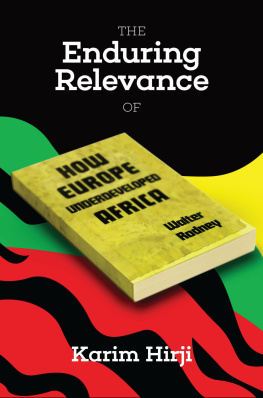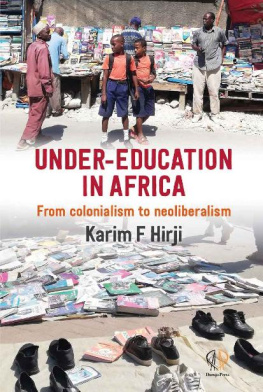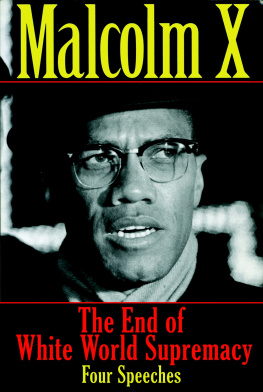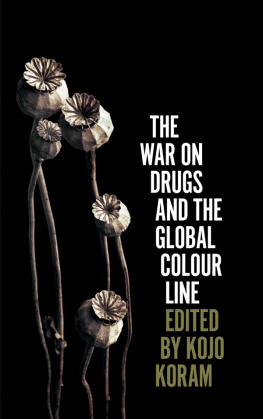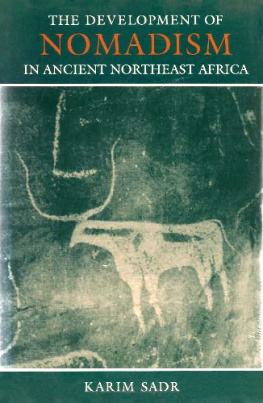POLICING DRUGS
First published 1998 by Ashgate Publishing
Reissued 2018 by Routledge
2 Park Square, Milton Park, Abingdon, Oxon, OX14 4RN
711 Third Avenue, New York, NY 10017, USA
Routledge is an imprint of the Taylor & Francis Group, an informa business
Copyright Karim Murji 1998
All rights reserved. No part of this book may be reprinted or reproduced or utilised in any form or by any electronic, mechanical, or other means, now known or hereafter invented, including photocopying and recording, or in any information storage or retrieval system, without permission in writing from the publishers.
Notice:
Product or corporate names may be trademarks or registered trademarks, and are used only for identification and explanation without intent to infringe.
Publishers Note
The publisher has gone to great lengths to ensure the quality of this reprint but points out that some imperfections in the original copies may be apparent.
Disclaimer
The publisher has made every effort to trace copyright holders and welcomes correspondence from those they have been unable to contact.
A Library of Congress record exists under LC control number: 98073752
ISBN 13: 978-1-138-32568-5 (hbk)
ISBN 13: 978-1-138-32575-3 (pbk)
ISBN 13: 978-0-429-45026-6 (ebk)
As well as the people named here I want to thank friends and colleagues, past and present, for advice and encouragement. My work on drugs began at the Institute for the Study of Drug Dependence. Jasper Woodcock, Nicholas Dorn and Nigel South gave me the opportunity to work there and the influence of the latter two will be apparent from a glance at the bibliography. Sheila Henderson and John Witton helped to make it an enjoyable place to be at. Geoff Pearson and Robert Reiner managed to be sympathetically critical. Steven Groarke, James Sheptycki, Kevin Stenson and Ross Coomber provided many helpful comments on some of the chapters here. Michael Keith and Eugene McLaughlin have done much else besides. Many or all of these people will not agree with my arguments in this book though none of them should be held responsible for any errors in it. Finally, I also want to acknowledge the support of all members of my family over the years.
Some parts of this book have appeared before and I thank the following for enabling me to include them here. in Community Care and in Scare in the Community: Britain in a moral panic, edited by Polly Neate (Reed Business Publishing). In all cases the papers have been revised, sometimes extensively so.
The three sections that make up this book are based on research carried out over several years. In this introduction I provide a brief overview of the contents and indicate some of the ways in which the issues raised have been developed.
investigates law enforcement. Drugs, or drug traffickers, have been one of the primary driving forces behind advances in the law and in policing since the 1980s. In recent years the pace of developments has not slowed, though the main legal provisions usually consolidated and updated legislation from the 1980s. In the realm of financial penalties for drug trafficking and other crimes, the 1993 Criminal Justice Act strengthened powers of asset confiscation, while the 1994 Drug Trafficking Act introduced powers to forfeit drug trafficking money being imported into or exported out of the UK. In dealing with offenders, the 1994 Criminal Justice and Public Order Act introduced powers for drug testing in prisons and, most recently, the Labour governments 1998 Crime and Disorder Act introduces provisions for a Drug Treatment and Testing Order. In between those two pieces of legislation the Crime (Sentences) Act, 1997 introduced mandatory minimum sentences for repeat drug offenders among others. In policing, the establishment of the National Criminal Intelligence Service has now been paralleled by an operational National Crime Squad, formed out of the previous Regional Crime Squads. Beyond Britain, the Europeanisation and transnationalisation of policing have been observed by Dorn (1996), Dorn et al. (1996) and Sheptycki (1995). Also reaching beyond the borders, in 1997 the British Foreign Secretary promised that as well as the police and Customs, the secret intelligence services would be deployed to assist poorer countries in tackling and eradicating drug production and trafficking (Spies and SAS join drugs war and all-out war on drugs, Evening Standard, 28 August 1997).
Set against all of this, it may seem curious that the main thread of is a charting of the failings of high level enforcement and the grounds for low, or street, level drug enforcement. Low level enforcement or nuisance policing has never, in either public or policing terms, achieved the status and importance that high level enforcement strategies and operators have commanded, though it was central to the well publicised Operation Welwyn in the area around Kings Cross station in London (Lee, 1996), as well as in disrupting established drug markets in particular areas (Fraser and George, 1996). It may be that set against the spectacular world of big traffickers and organised crime, low level policing is regarded as simply too mundane to command much attention. If this correct, it still arguable that forms of low level enforcement have become a routine part of street clearance tactics when allied with local multi-agency initiatives. Dorn (1996) has argued that a single market in Europe may witness further developments in small scale, flexible trafficking, contrary to conventional views that it opens the door for organised crime and big traffickers. Hence the effects of European integration may be much more mundane than some have imagined. This argument indicates that low level policing may be more appropriate than conventional high level strategies. Furthermore, it can be noted that the stress upon demand reduction continues and while this is sometimes taken to mean prevention in a narrow sense, the argument in this book is that it has been conceived as a means of transcending and encompassing the standard distinctions between enforcement, prevention and treatment. Demand reduction was for instance one of the key elements of the United Nations Special Session on the World Drug Problem in New York in June 1998, as well part of the strategy of successive British governments (HM Government, 1995, 1998a).
Low level and local policing of a street drug market is also the issue that ), as well as in the local indicators for drugs strategies developed by Chatterton et al. (1995) and the survey of Drug Action Teams by Duke and MacGregor (1997; see also some contributions in OConnor et al, 1998).
is a review of the philosophical and practical arguments for and against drug legalisation. This hardy perennial in media and public debate attests to the degree of interest in the subject, even though the arguments are often tautological. In the past couple of years a raft of developments have helped to push the issue of the legal status of cannabis further into the public arena. In 1997 the British Medical Association (BMA) voted for cannabis products to be made legally available for medical use with conditions such as multiple sclerosis or cancer (The Guardian, 3 July 1997). A few months later the Lord Chief Justice called for detached, objective [and] independent consideration of the case for legalisation, though the Home Secretary ruled out both a Royal Commission on drugs as well as decriminalisation of any drugs



